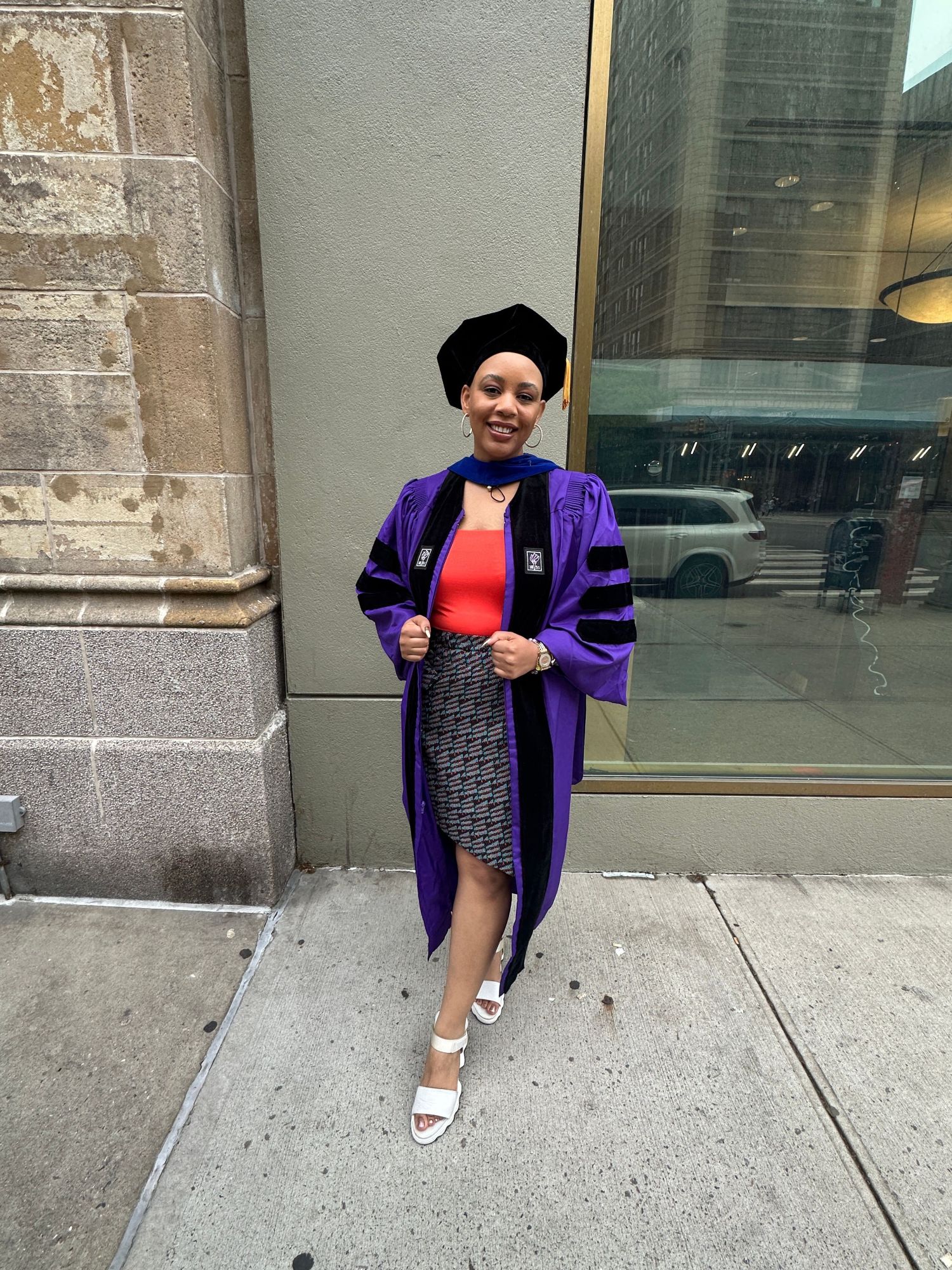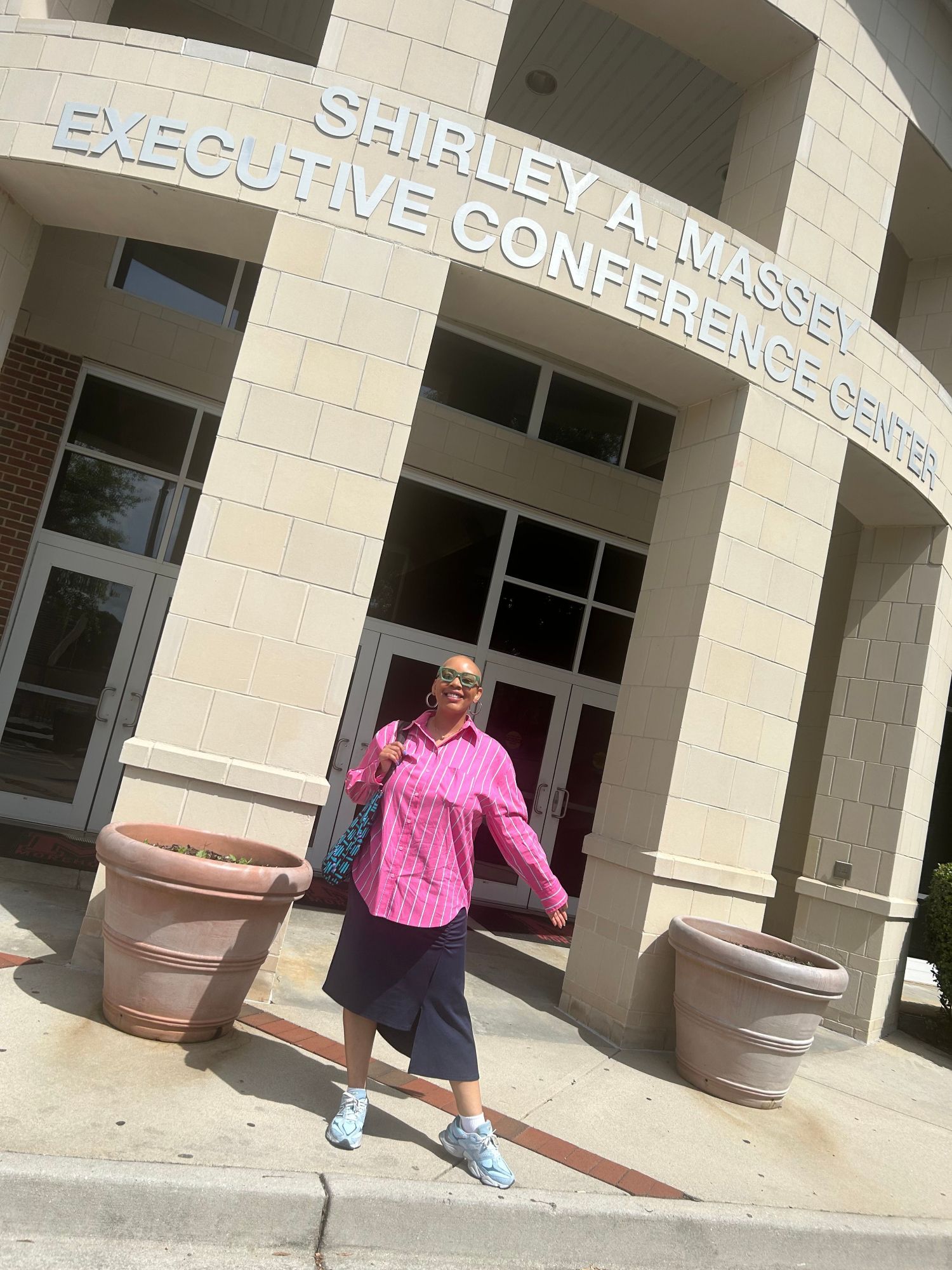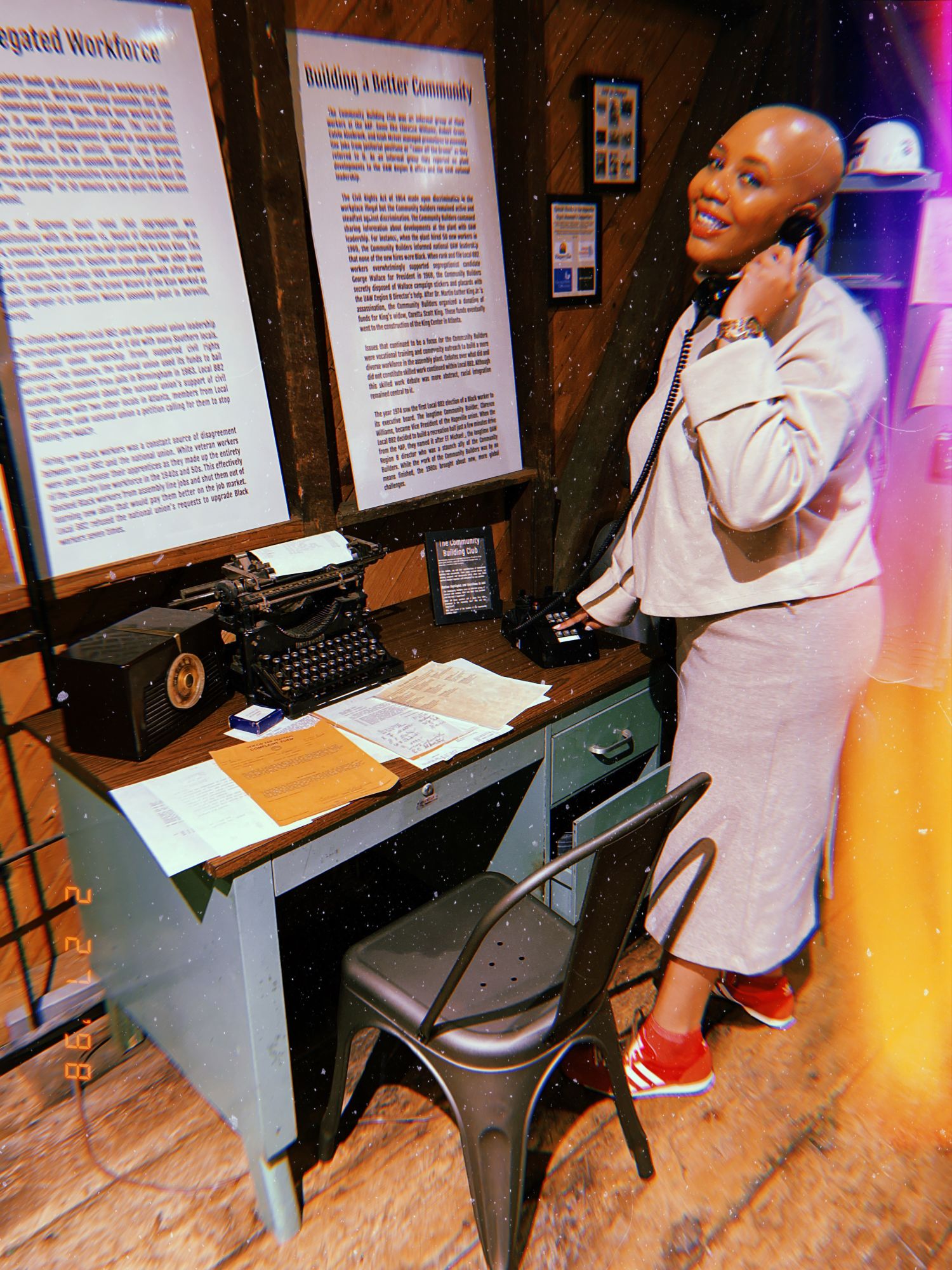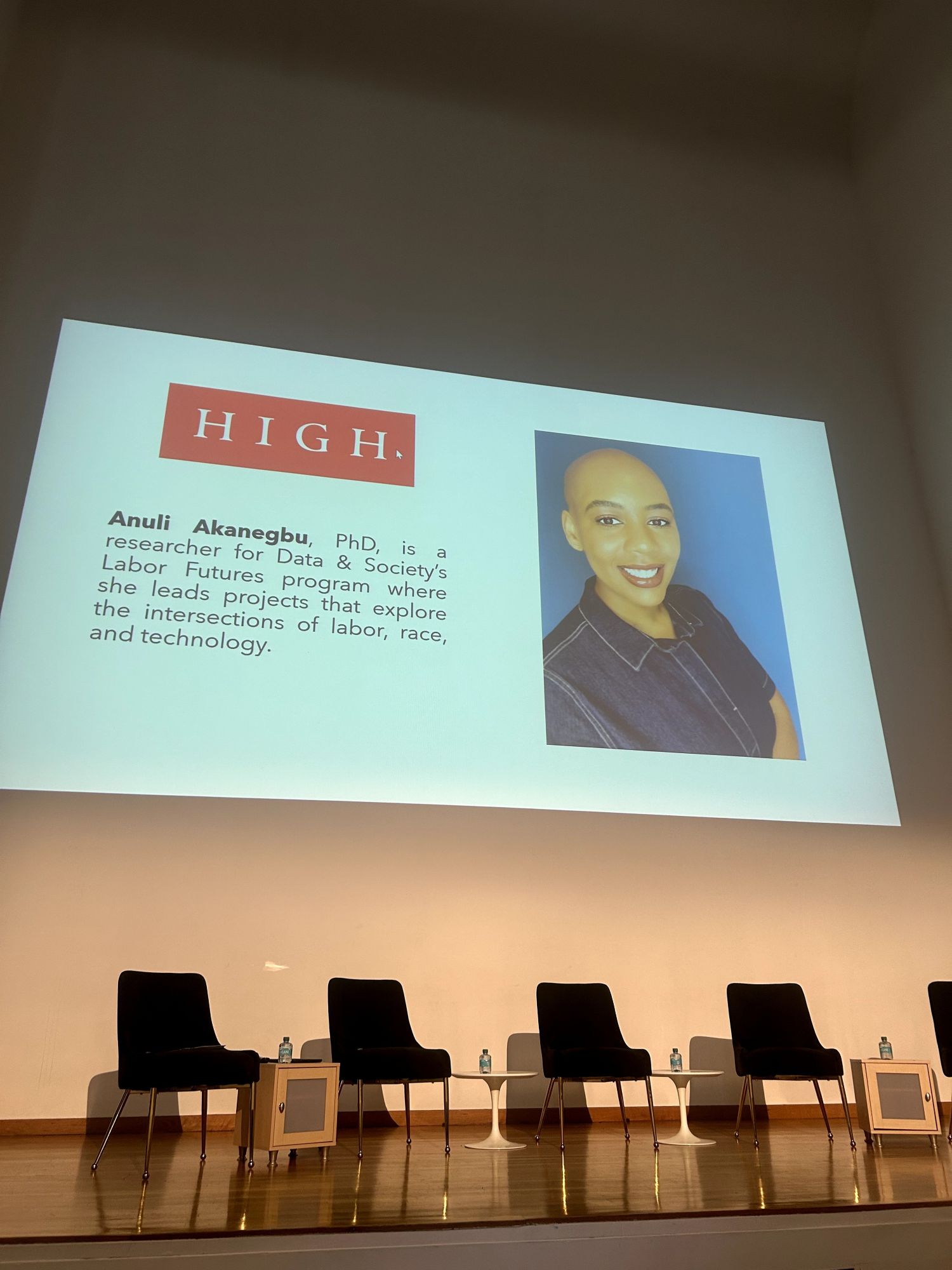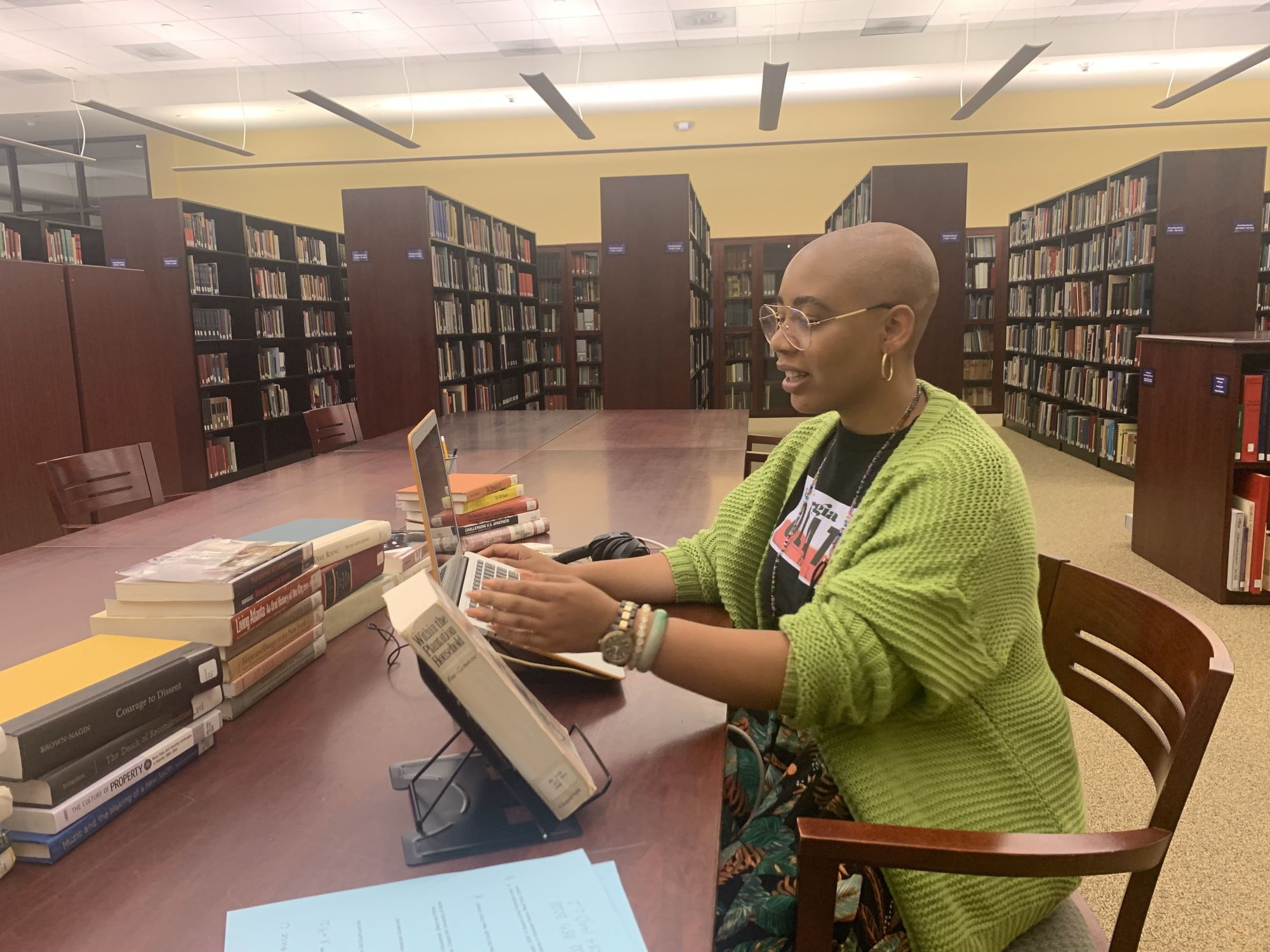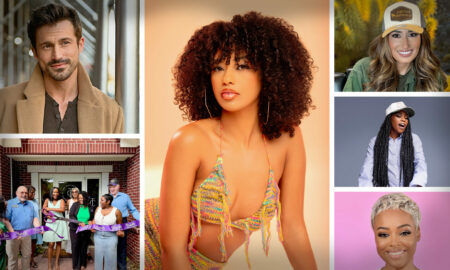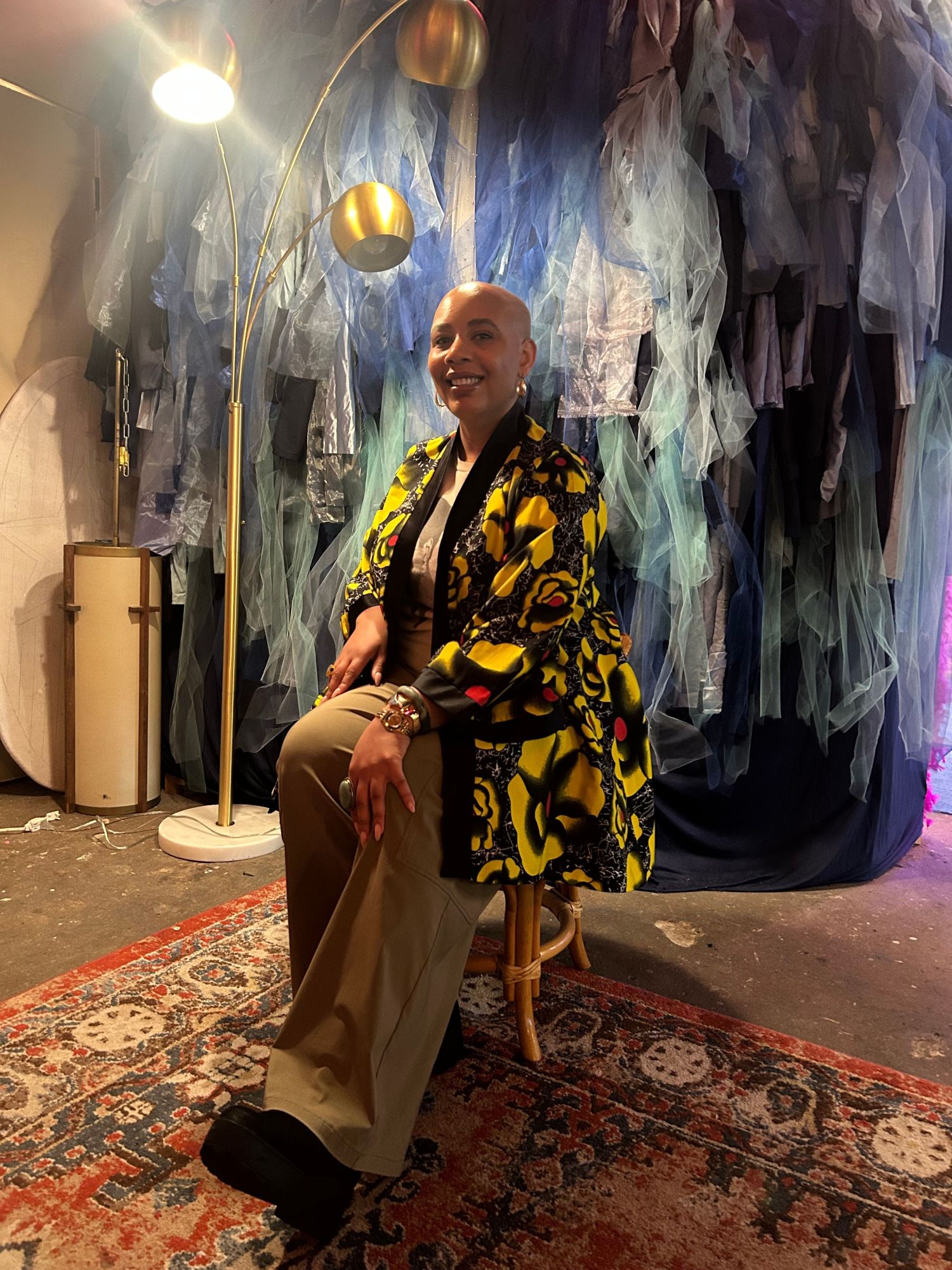

Today we’d like to introduce you to Anuli Akanegbu.
Hi Anuli, thanks for sharing your story with us. To start, maybe you can tell our readers some of your backstory.
I’m a cultural anthropologist, researcher, writer, and educator based in Atlanta. I’ve always been a curious observer of people and places. I was that kid who asked a lot of questions to get to the “why” of something and who spent a lot of time people-watching. I’ve always been intrigued by style, self-presentation, and self-expression and by how people are perceived before they even speak. I thought I’d work in fashion or marketing, not necessarily as an anthropologist, even though I’ve always been one. And, while I have worked in those industries, my curiosity kept guiding me toward understanding people’s inner worlds and social realities.
Before earning my PhD in cultural anthropology from New York University, I built a career in marketing and consumer research. That work trained me to see how the lived experiences of people get translated, oftentimes flattened, into data, categories, or personas. Eventually, I wanted to study those processes from the inside out. My dissertation, “The South Got Something to Share,” looked at the work and lives Black creative contract workers in Atlanta––which included social media influencers, artists, and musicians––to better understand how their labor and identities shape the city’s image as a creative hub. I now research labor, race, and technology with my most recent work being as a Researcher with the Labor Futures program at the Data & Society Research Institute where my focus is on understanding what it means to be perceived as “AI literate” in today’s labor market and how perceptions of skill impact the career outcomes of Black workers in Atlanta.
Outside of my organizational affiliations, my curiosity and creativity take shape through BLK IRL® (www.blkirl.com), my multimedia ecosystem built around Black storytelling, experiential learning, and community engagement. Through BLK IRL®, I explore how Black knowledge, creativity, and care can guide us in a world that often treats people like machines. My work is ultimately about slowing down, paying attention, and remembering that we were made to live like humans, not to work like robots.
I’m sure it wasn’t obstacle-free, but would you say the journey has been fairly smooth so far?
While my career might look inevitable in hindsight, it’s been anything but smooth or linear. I graduated in the top 10% of my high school class and thought I had my future figured out––college, career, success, in that order. But, once I got to college, I quickly realized that the path ahead wasn’t so straightforward.
I was a business major struggling through math and economics courses, even as the daughter of an economist and math professor. I’m a writer and observer by nature; words have always been my first language, so the math was simply not mathing for me, as they say. When I could no longer financially afford to stay at my first university, I made the difficult choice to leave and start over after the first semester of my sophomore year.
That decision changed everything. I took a semester off, returned home to Maryland to work the same minimum-wage job I’d held in high school, and had to face the uncertainty of what would come next. I didn’t let anyone outside of my immediate family know that I was home and looking back, I wish I’d turned that season into an opportunity to pursue internships or jobs in my fields of interests instead of retreating and hiding, but I was young and embarrassed. At the time, it felt like I had regressed in life, as if I squandered my opportunity to “make it” even though, more than anything, it was the prohibitive cost of a college education that was holding me back. That, and not opting to pursue a major in the social sciences, where I excelled, to be honest.
After some time wallowing in insecurity, I built up the nerve to advocate for myself, instead of resigning to give up on myself. I walked into Howard University’s School of Communications without an appointment, just determination, my resume, a portfolio of projects I’d done, and my dad in tow. That day, I convinced an advisor to take a chance on me, promising that if admitted, I’d excel. And, I did, graduating summa cum laude three years later. Although my battle was hard-won, that experience taught me the power of persistence and self-belief. I learned then that I can do anything I put my mind into, even though I still have to be reminded of this fact from time to time.
The road since then has had its share of challenges as well. Earning a PhD in five years when most take seven required the same kind of clarity of self-advocacy. Discovering I am neurodivergent while navigating the demands of academia added another layer of understanding to my story. The road has never been smooth, but I’ve learned to smooth it out, with self-care and clear intention, as I go. And, that’s what my work as a labor researcher and surveyor of Black knowledge systems continues to reflect: finding ways to move through the world with curiosity, integrity, and dignity, even when the terrain isn’t smooth.
Thanks for sharing that. So, maybe next you can tell us a bit more about your work?
I’m proud of my work as the creator of BLK IRL®. BLK IRL® is a multimedia ecosystem built around Black storytelling, experiential learning, and community engagement. What started as a podcast in 2020 has grown into an evolving creative platform that bridges my anthropological research with public scholarship and practical application. I launched BLK IRL® while in my doctoral program at NYU as a way to document what I was learning in real time through media-making––first through audio diaries, then through interviews with Black artists, workers, and cultural producers whose experiences mirror the very questions my research asks. For me, BLK IRL® has always been more than a project; it is a living experiment in sharing knowledge publicly and in conversation with community.
The platform’s name, pronounced Black in Real Life, is a refusal of digital dualism, or the idea that our online lives are less “real” than our offline ones. As a researcher of labor and identity in the digital age, I wanted to show that the same body moves through both spaces with authenticity, care, and complexity. Whether online or offline, the work, creativity, and self-expression of Black people are real and worthy of study, preservation, and celebration. Over time, BLK IRL® has become a resource and reference point for others. It has been featured in course syllabi, cited in grant applications, and recognized as a model for blending creative methods with ethnographic research.
What sets my work apart is that I learn by doing. I’ve always been drawn to project-based work that puts theory into practice to create something tangible from ideas. Under the BLK IRL® umbrella, I’m building out three interconnected branches: BLK IRL Studios (storytelling and digital media), BLK IRL Labs (workshops and experiential learning), and The BLK IRL Collective (community and connection). Each of these branches speaks to my belief that research, when rooted in a Black feminist ethic of care and a devotion to place, can be both rigorous and joyful as well as something to be shared, experienced, and lived. To quote Gil Scott-Heron, “The revolution will be live.”
Let’s talk about our city – what do you love? What do you not love?
I’ve lived in several major cities as an adult––Boston, D.C., Chicago, and New York, but Atlanta is the one that feels most like home. It’s a place where I can breathe a little easier and think a bit bigger. What I love most about Atlanta is its people: their ingenuity, resourcefulness, and imagination. Atlanta is full of people who find ways to make things happen, often with limited resources, but limitless vision. Everyone is a celebrity in Atlanta! That spirit––the Atlanta spirit––rooted in a belief that you can make something from where you are, red clay and all, is what I find most inspiring about the city.
What I like least about Atlanta is the gap between its surface-level beauty and its infrastructure. It’s a city that tells its story beautifully but doesn’t always build the systems to support that story. Public transportation is fragmented: the sidewalks don’t always connect, and you can’t really live here without a car. This makes access, especially for working people, more complicated than it should be. Still, the people here remind me why I stay. Their creativity, adaptability, and unwavering sense of possibility are what keep Atlanta moving forward…one idea, one hustle, one rebuild and rebrand at a time.
Contact Info:
- Website: www.anuliwashere.com
- Instagram: https://www.instagram.com/anuliwashere/
- Other: https://www.blkirl.com/
